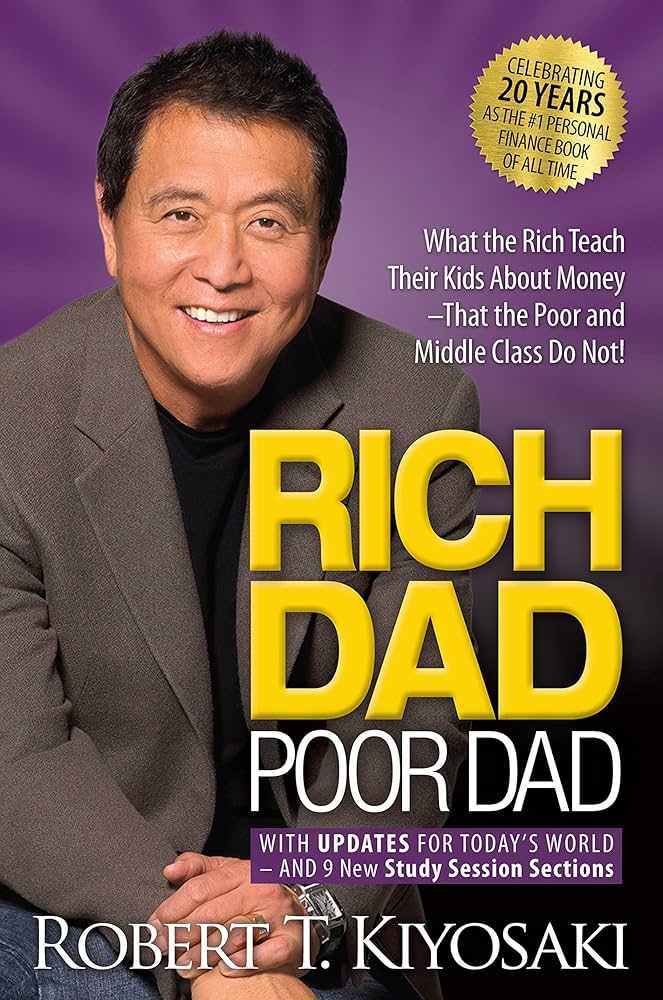
Rich Dad Poor Dad by Robert Kiyosaki
This week I am covering a short book that has received many praises, as well as many criticisms over the years – "Rich Dad Poor Dad" by Robert Kiyosaki. This personal finance classic has been a bestseller in personal finance for many years, with 32 million copies sold worldwide. I was curious to understand why it continues to resonate with so many readers.
🖊️ Robert Kiyosaki is a Japanese-American entrepreneur, author, and speaker, who has also become an influential figure in the world of finance, boasting over 3.5 million followers on Instagram. It is worth noting that Kiyosaki has amassed significant wealth through his books and courses.
My 🔑 takeaways:
The book stands out from conventional personal finance literature as it is presented as a narrative, teaching various lessons through storytelling. Kiyosaki introduces us to his biological father, referred to as the "poor dad," and a "rich dad" who belongs to his friend. Both fathers shared financial wisdom with Kiyosaki from an early age, but he credits his rich dad with imparting far more valuable lessons, which he applied throughout his life. The book covers six lessons in total, followed by questions for self-reflection.
One of the book's central messages is that the wealthy do not rely on traditional employment to earn money. While the middle and lower classes work to accumulate savings, spend, and repeat the cycle, the more financially literate invest (part) in income-generating assets. Over time, these assets create passive income streams, which can fund expenses or further investments (see the illustrations for a visual representation).

Another crucial point emphasized in the book is the importance of building financial literacy, skills such accounting, investing, understanding markets, and tax law. Most of these skills are often neglected in formal education, requiring individuals to take the initiative to develop their knowledge in these areas. Effective cash flow management is of uttermost importance, as it is evident over time that once income from assets surpasses expenses, the power of compounding truly takes hold. Thus, it is not just about how much you earn, but how much you retain and use for generating additional income streams.
Lastly, Kiyosaki highlights that the most valuable asset is the human brain, in particular when learning three management skills critical for success: cash flow management, dealing with people, and creating efficient systems.
Final Word
In my opinion, the book is suitable for beginners. While it touches upon essential concepts such as asset-building and financial literacy, it presents them in a more engaging manner through storytelling. Critics argue that the book lacks specific guidance, a point I can agree upon. However, these lessons serve as valuable starting points for delving deeper into the world of personal wealth management.

